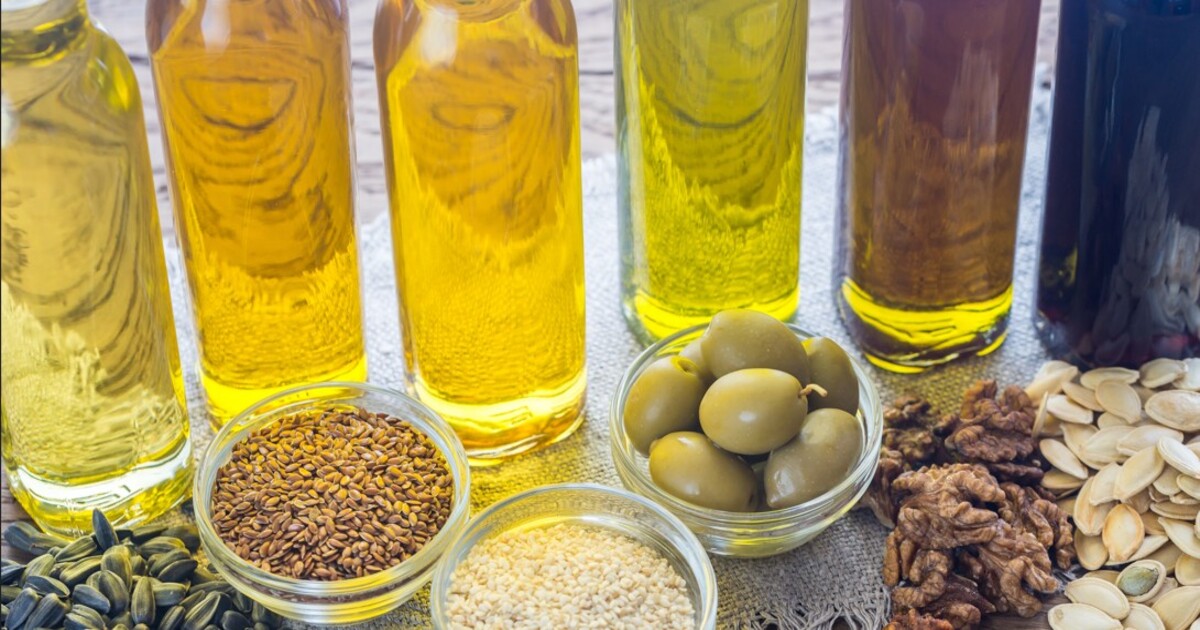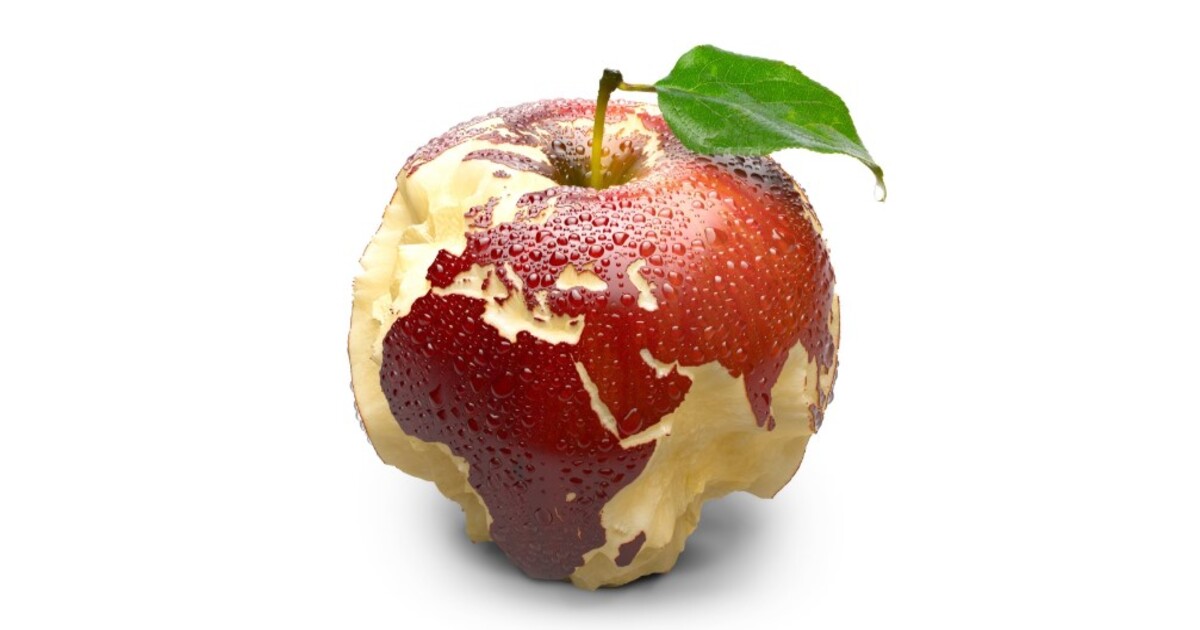The Oil War Is on Again
No, not that one — but the one impacting your food intake and the kitchen table. Welcome to the seed oil war.
November 8, 2025

We can get so easily seduced by the allure of good olive oil. It only takes a food column on the joys of single-variety, cold pressed, early harvest, organic, extra virgin tahdidahdidah olive oils with grassy-fruity-bitter-herbal-almond-citrus or apple notes. Or simply some seductive name or label.
“Age-defying magic.” Really?
Ancient Roots, to single out just one, sells 100ml/3.3 fl oz of its “age-defying magic” for £29.95/$40, down from £49.95/$67. On my budget, that is the price of about five bottles of wine.
Its oil comes from olive trees grown at the base of a 300,000 year-old volcano in rare, earth-deep minerals, bursting with polyphenols and bold, volcanic flavor. Their words, not mine.
How about the Slovenian option?
Me, I am betraying them all with this Slovenian pumpkin seed oil which is the color of engine oil and adds a sumptuous nuttiness to salads and steamed vegetables and fish.
I am also besotted with one of the great discoveries of my travels around the Republic of Georgia — its cold-pressed golden rapeseed oil which has no relationship to Canola and other rapeseed cooking oils from your local supermarket. It has 50% less saturated fat than olive oil and a flavor so rich you should only dip good bread into a saucer of this elixir.
Back to seed oils
Seed oils are back in the news. I wrote about them last August when they were causing alarm on the Internet where “The Hateful Eight” had become the umbrella term for rapeseed, corn, cottonseed, grapeseed, soy, rice bran, sunflower and safflower oils.
Now Robert F. Kennedy Jr., the U.S. Health Secretary, has weighed in. He claims the American public is being “unknowingly poisoned” by seed oils, which make up 20% of the U.S. calorie intake, predominantly from their use in processed foods.
TikTok battles over “toxic oils”
U.S., UK and European influencers are joining the battle with TikTok videos warning that these “toxic oils” can cause cancer, heart disease and even death.
Snacks, sauces and skin care brands are now paying attention, producing seed oil-free versions.
Seed oil’s German scientific origins
Seed oils only became available around 100 years ago when Wilhelm Normann, a German scientist, created a process that added hydrogen to the oil extracted from cotton seeds, turning it into a cheap-to-produce semi-solid fat that went onto the U.S. market in 1911 as Crisco. Trex is the UK equivalent, also a lard-like fat used as an all-round shortening.
Oil-seed leaders sunflower and rapeseed reached the height of popularity in the 1960s and 70s, the period of fears that butter and lard clogged up the arteries, causing a surge in heart disease.
Early in the 1990s, fast food chains like McDonald’s abandoned beef tallow (that grease fashionable skin gurus now want you to smear on your night-time face, provoking dreams of the Sunday roast if nothing else) in favor of a corn-and-cottonseed oil blend to cook their fries.
The global dimension
Global production of vegetable oils has doubled in the last 20 years, from about 165 million tons in 2001 to around 330 million tons in 2021, and is predicted to grow by 30% in the next four years.
The argument against their processing methods is threefold: They rely on high temperatures and chemicals which strip the oils of nutrients, heating these oils to cook which increases their toxicity because they break down rapidly and release harmful by-products, some of which are carcinogenic.
Most significant is that they contain the essential omega-6, which our bodies cannot make, in high enough levels to cause inflammation and cellular damage — and a raft of potential conditions from Alzheimer’s to cancer.
A scientific dispute
This is widely disputed by serious scientists. Dariush Mozaffarian of Tufts University in Massachusetts says omega-6 fatty acids do not increase inflammation but, on the contrary, have powerful anti-inflammatory effects.
A recent U.S. study of over 200,000 people consuming plant and seed oils found them less, not more, likely to die from cardiovascular disease or cancer. Other studies have established that omega-6 fatty acid in seed oil lowers the “bad” LDL cholesterol in our blood. It has also been shown to reduce the risk of depression.
There may well be risks associated with those seed oils processed at industrial levels, that extract them with the chemical hexane, then deodorize and bleach them. But if you are at all concerned, focus on cold-pressed seed oils. Like fancy olive oils, they are inevitably much more expensive but incomparably more delicious.
Nikolaos Koundouros, postdoctoral associate at Weill Cornell Medicine research center in New York, says “It is important to remember omega-6 fats are essential for a reason: If you completely cut them out, you could have detrimental side effects…Seeds are one of nature’s most nourishing gifts — a package of beneficial healthy fats.”
A recipe for Greek grape and beetroot salad with walnuts and rusks (serves 4)
Who knew that grapes had an affinity for beetroot? Not me. But on Naxos, the Greeks make a salad that also includes walnuts and chunks of rusks.
Try it, it works — and I suspect it would also go well as a side dish for a roasted game bird. Or just serve it alone as a starter.
Ingredients
4 boiled, cooled and skinned beetroots (cut into cubes)
300g/10½ oz seedless grapes (halved)
4 salad onions/scallions (white part only) thickly sliced
3 heaped tablespoons finely chopped fresh dill
Salt and freshly ground black pepper to taste
2-3 tablespoons olive oil (or your preferred seed oil)
Juice of half a lemon (or more to taste)
Half a tablespoon Dijon mustard
3-4 Cretan barley or rye rusks (or very thick slices of toasted whole ,wheat or sourdough bread) broken into large chunks
60g walnut halves, toasted in the oven, then lightly chopped into large pieces.
Method
Add the beetroot cubes, grape halves, salad onions/scallions to a mixing bowl with the dill, salt and black pepper, and toss thoroughly.
Beat the mustard, olive oil and lemon juice together in a bowl and pour over the salad. Add the rusks and walnuts, then toss well and serve.
Takeaways
Seed oils are back in the news. I wrote about them last August when they were causing alarm on the internet where “The Hateful Eight” had become the umbrella term for rapeseed, corn, cottonseed, grapeseed, soy, rice bran, sunflower and safflower oils.
U.S. Health Secretary Robert F. Kennedy Jr. claims the American public is being “unknowingly poisoned” by seed oils. U.S., UK and European influencers are joining the battle.
Seed oils only became available around 100 years ago when Wilhelm Normann, a German scientist, created a process which added hydrogen to the oil extracted from cotton seeds, turning it into a cheap-to-produce semi-solid fat that went onto the U.S. market in 1911 as Crisco.
Global production of vegetable oils has doubled in the last 20 years, from about 165 million tons in 2001 to around 330 million tons in 2021, and is predicted to grow to 30% in the next four years.
A recent U.S. study of over 200,000 people consuming plant and seed oils found them less not more likely to die from cardiovascular disease or cancer. Other studies have established omega-6 fatty acid in seed oil lowers the “bad” LDL cholesterol in our blood.

